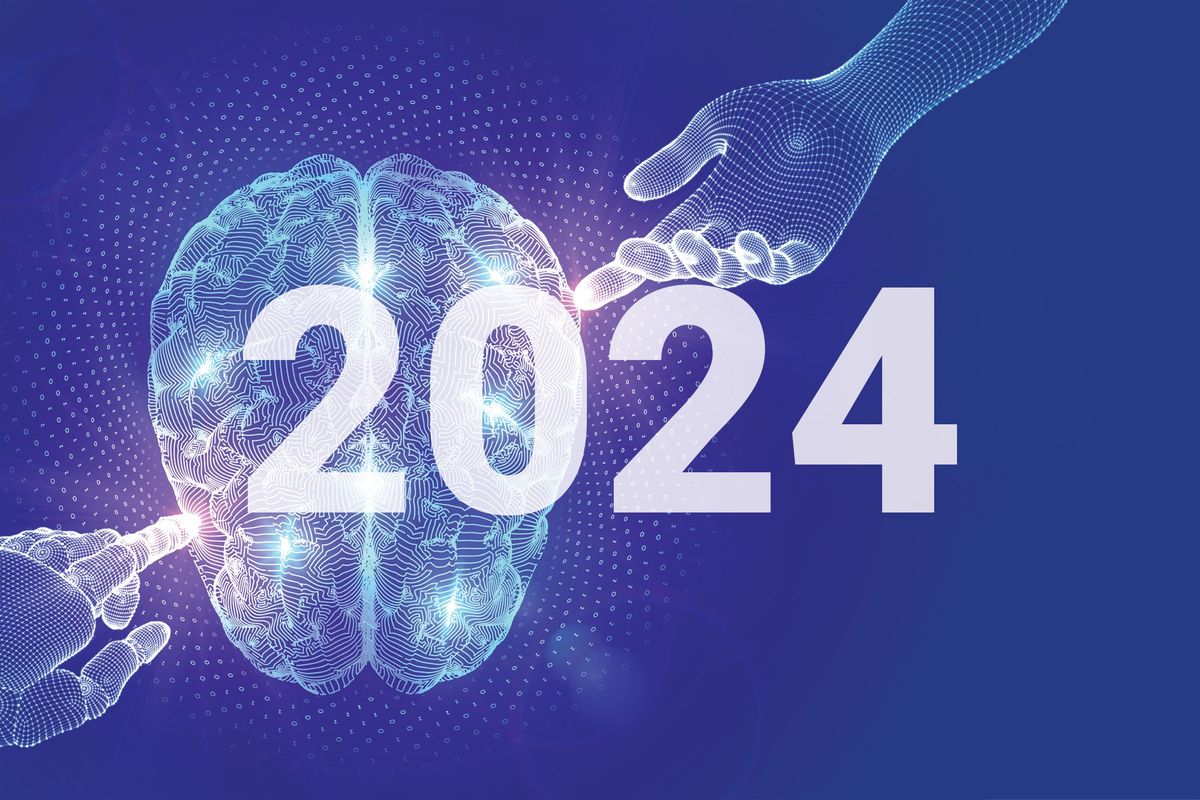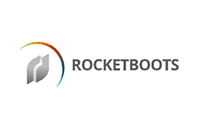AI Market Update: Q1 2024 in Review
Interest in AI hit unprecedented levels in 2023. Read on to find out about the latest developments in the sector now that the new year has begun.

Tech stocks have emerged as a driving force in the market, and in Q1 they built on a rally that began in 2023.
According to Bank of America Global Research, tech stocks saw inflows of US$18.6 billion during the period, the third largest on record. Artificial intelligence (AI) initiatives from both new and existing companies helped to drive these gains, which have propelled the tech-heavy Nasdaq Composite (INDEXNASDAQ:.IXIC) higher in 2024.
Meanwhile, investors are encouraged by the US Federal Reserve’s “soft landing” narrative, although Chair Jerome Powell’s stance regarding the timing and magnitude of potential interest rate cuts due to still-sticky inflation is a concern.
What happened in the AI market in the year's first quarter, and what could be coming as the sector continues to advance? Read on for insight on this fast-developing segment of the tech industry.
Tech giants race for AI dominance
Tech enthusiasm was strong in January, with Microsoft (NASDAQ:MSFT) hitting a US$3 trillion valuation and Google parent company Alphabet (NASDAQ:GOOGL) approaching its all-time highest close on January 24.
AI has been a key component in these moves. In January, Google demonstrated its prominence in the sector when it revealed at the Unpacked conference that Samsung (KRX:005930) would be using Google’s Gemini AI for its new Galaxy S24 series. Google previously integrated Gemini with its flagship Pixel 8 Pro phones at the end of 2023.
These developments, along with competitor Apple’s (NASDAQ:AAPL) ongoing investments in AI research to develop new product offerings, highlight the increasing prominence of AI in consumer electronics.
As February began, attention shifted to NVIDIA (NASDAQ:NVDA). Reuters reported that the company was looking to develop a US$30 billion business unit to expand into the custom chip market in an effort to maintain its competitive edge in the AI sector. However, the more noteworthy event was the February 21 release of NVIDIA's latest results.
In the days leading up to the release, Bloomberg reported that almost US$200 billion in market value was riding on NVIDIA's results. This led analysts at Goldman Sachs (NYSE:GS) to call NVIDIA “the most important stock on planet Earth."
Ultimately, company reported a record US$22.1 billion in revenue in Q4, 22 percent higher than the prior quarter and 265 percent higher than Q4 2022. Its share price surged over 16 percent and remained high throughout the quarter.
Other tech companies have been stepping up their efforts to compete with NVIDIA's stellar performance and secure their place in the AI market. Microsoft (NASDAQ:MSFT) is reportedly developing an AI network card to improve the performance of its Maia AI chip, steering the company away from its reliance on NVIDIA. Additionally, Microsoft has partnered with OpenAI’s France-based competitor Mistral AI to bring its open-source AI models to Azure cloud users. The company is also collaborating with media platform Semafor to refine the responsible use of AI in journalism.
Moreover, Bloomberg reported that SoftBank Group’s (TSE:9984) CEO is seeking US$100 billion — with most of the funds coming from Middle Eastern institutions — for a potential venture into the chipmaking industry to complement semiconductor company Arm Holdings (NASDAQ:ARM), in which SoftBank holds a majority stake.
In January, OpenAI’s Sam Altman fueled speculation about a potential expansion into semiconductor manufacturing with a visit to South Korea, where he met with executives from Samsung and SK Hynix (KRX:000660).
Additionally, the Biden administration granted US$1.5 billion to semiconductor company Global Foundries (NASDAQ:GFS) as part of the CHIPS and Science Act, demonstrating the government's commitment to domestic production of advanced semiconductor chips. The grant will finance the construction of a new facility, as well as the expansion of an existing one in Malta, New York, plus upgrades to the firm's longest-operating facility in Vermont.
February also saw Google’s establishment of a new AI research hub in Paris.
New AI investments and products
March brought a slew of AI activity, from headline-generating partnerships to company developments.
Reports emerged that Apple might adopt Google’s Gemini AI technology for iPhones, and Microsoft hired Inflection AI co-founders Mustafa Suleyman and Karén Simonyan, along with most of the startup's staff.
The company said it would license Inflection’s software for a sum of US$620 million, and also disclosed a partnership with OpenAI to build a US$100 billion data center and supercomputer with the expectation that it will launch in 2028.
Meanwhile, cloud services leader Amazon (NASDAQ:AMZN) deepened its collaboration with AI startup Anthropic, investing US$2.75 billion to bring its total investment in the company to US$4 billion. As part of the deal, Anthropic will power some of its operations using Amazon Web Services data centers. Amazon’s investments in AI include plans to spend nearly US$150 billion over 15 years on building and operating data centers.
Likewise, Intel (NASDAQ:INTC) announced it will spend US$100 billion to expand and build factories across four states after it secured US$19.5 billion in federal grants and loans. The company expects a further US$25 billion will be issued in tax breaks. Taiwan Semiconductor Manufacturing Company (TSMC) (TPE:2330) is also set to win grants totaling more than US$5 billion from the US federal government to build a chipmaking facility in Arizona.
Key players also made headlines with product launches during March. Microsoft unveiled its AI-enhanced Surface Pro 10 and Surface Laptop 6, integrating its advanced Copilot AI into the devices.
NVIDIA hosted its GPU Technology Conference just after the trading day closed on March 18, unveiling its Blackwell GPU platform with sophisticated, advanced AI capabilities. Despite the fanfare around the event, NVIDIA's share price fell during after-hours trading, hitting a weekly low of US$855.18. However, it recovered to close the week at US$942.89.
NVIDIA and Alphabet were undoubtedly the biggest AI winners in the first quarter of the year, achieving the largest surges in market capitalization in March, with 14 and 9 percent increases, respectively. NVIDIA became the world’s third most valuable company on March 4, closing the day with a valuation of US$2.11 trillion.
In terms of regulation, the EU's Digital Markets Act led to increased scrutiny of Big Tech. Apple and Google were the EU's first targets, with lawsuits being brought against both companies. For its part, Apple faced a second lawsuit in the US, where the company has been accused of violating antitrust laws.
What AI trends should investors watch in 2024?
As Q2 unfolds, the AI landscape is being shaped by significant trends and events.
In a piece for Vox, Dylan Matthews highlights how AI could reconfigure the economy the way the Industrial Revolution and the Information Age did, albeit with a cautious outlook on the extent of this transformation.
On a different note, Nick Mersch, portfolio manager at Purpose Investments, has pointed to the disparity between how much companies have spent on AI infrastructure and how much revenue the industry has pulled in.
“We still haven’t figured out the monetization layer,” he wrote in his latest market commentary.
Still, a growing sense of FOMO surrounding generative AI has driven industry leaders to invest billions of dollars in startups. At the same time, the temporary halt in production at TSMC following a 7.4 magnitude earthquake off Taiwan’s east coast has underscored the risks associated with the semiconductor industry’s over-concentration.
TSMC produces between 80 and 90 percent of the world’s most advanced chips, including the majority of those used by NVIDIA's GPUs, and it overtook Intel as the world’s dominant chipmaker in 2023. A Reuters report suggests that although Intel is working to catch up with TSMC, it could be years before its profits recover.
Other companies are also challenging NVIDIA's and TSMC’s dominance in the AI sphere. For example, South Korea’s SK Hynix plans to spend US$3.87 billion to build a manufacturing plant for high-bandwidth memory chips that train AI systems; it will be built in West Lafayette, and will be the first of its kind on American soil. Additionally, South Korean researchers have reportedly developed a chip that draws 625 times less power than NVIDIA's chips.
Israel-based Hailo has its sights set on AI too, and on April 2 announced that it raised US$120 million in a funding round, bringing its valuation to US$1.2 billion. It released a high-performance generative AI chip the same day.
In Canada, early April saw Prime Minister Justin Trudeau reveal a C$2.4 billion funding package aimed at bolstering the country's AI industry while fostering job growth.
Investor takeaway
With the first quarter of 2024 in the books, the AI landscape reflects both progress and ongoing challenges.
Promising moves from tech heavyweights and innovative new players are driving the sector forward, but concerns about a bubble in the industry persist, along with ethical considerations. Even so, many experts remain confident about AI's potential, and see a path to a future where this technology serves humanity's goals.
Don’t forget to follow us @INN_Technology for real-time news updates!
Securities Disclosure: I, Meagen Seatter, hold no direct investment interest in any company mentioned in this article.


